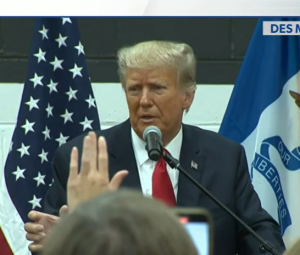Amena Alkeswani, a fourth-year Dermatology resident at the University of Tennessee Health Science Center in Memphis, has ignited a firestorm of controversy due to her recent anti-Semitic remarks on social media. The posts, made under the handle @amena_derm_md, include statements such as, “Your Zionist folks are swimming in blood money, and I doubt they would want to do honest people work like we do.”
The comments have garnered widespread attention, prompting questions about the appropriateness of such sentiments, especially coming from a medical professional. As the controversy unfolds, it becomes imperative to delve into the background of Amena Alkeswani, examining who she is and the potential implications of her social media activity.
Who is Amena Alkeswani?
Amena Alkeswani is a fourth-year Dermatology resident at the University of Tennessee Health Science Center in Memphis. Despite her professional training and dedication to the field of dermatology, recent social media posts have raised concerns about her stance on geopolitical issues, particularly the Israeli-Palestinian conflict.
Her comments not only express solidarity with the Palestinian cause but also venture into making sweeping generalizations about a specific group of people, perpetuating harmful stereotypes. Alkeswani’s involvement in such controversial discourse raises questions about the intersection of personal beliefs and professional responsibilities, particularly in a field where empathy, inclusivity, and impartiality are essential.
As tensions continue to escalate in the Middle East, the impact of Alkeswani’s statements on patients, colleagues, and the broader community underscores the delicate balance that professionals must strike between personal expression and maintaining the ethical standards expected in their roles.
Also Read: Who was Yehudit Weiss? Body of Israeli hostage found near Al-Shifa hospital
It remains to be seen how the University of Tennessee Health Science Center will respond to the controversy surrounding one of its residents. The incident raises broader questions about the responsibility of institutions to address and manage the public behavior of their professionals, especially when it involves expressions that may be perceived as divisive or discriminatory.







